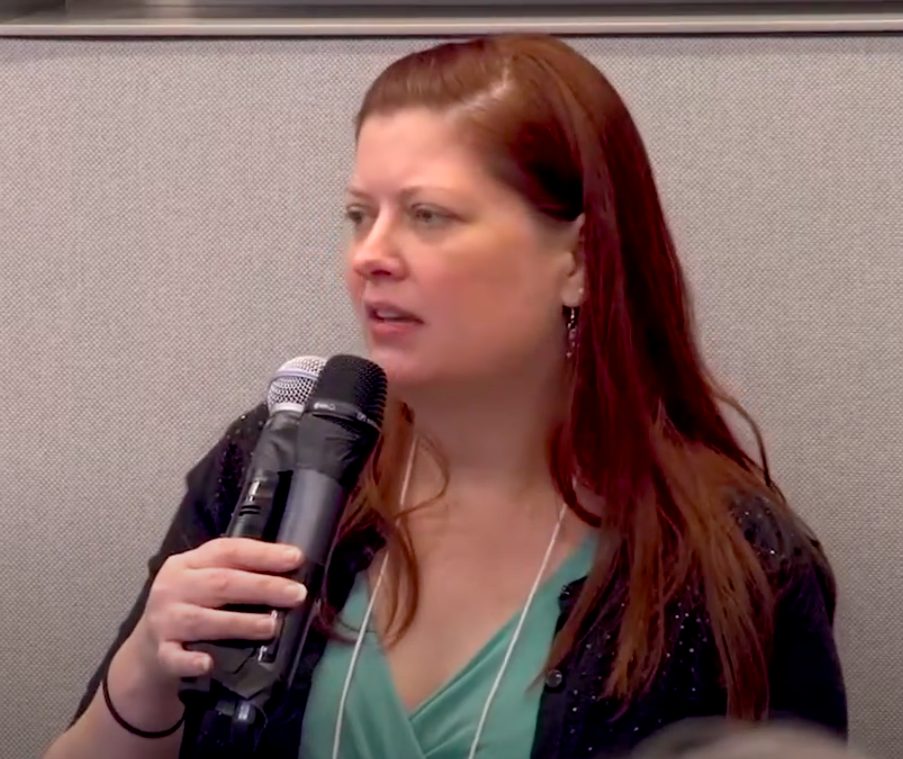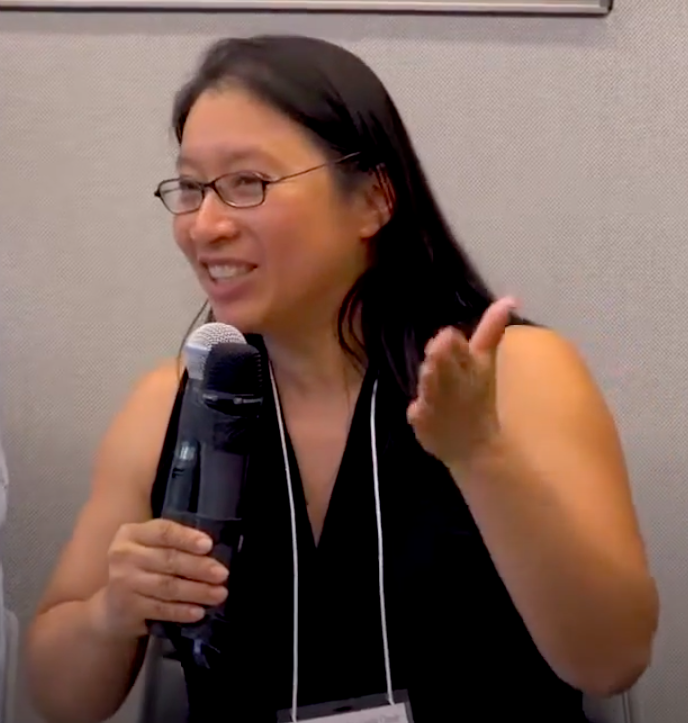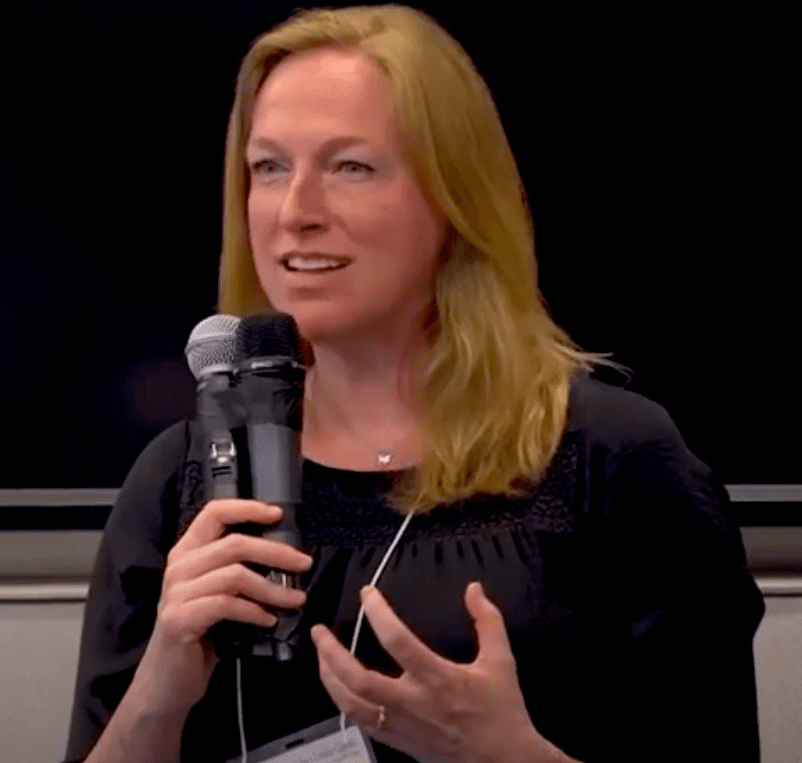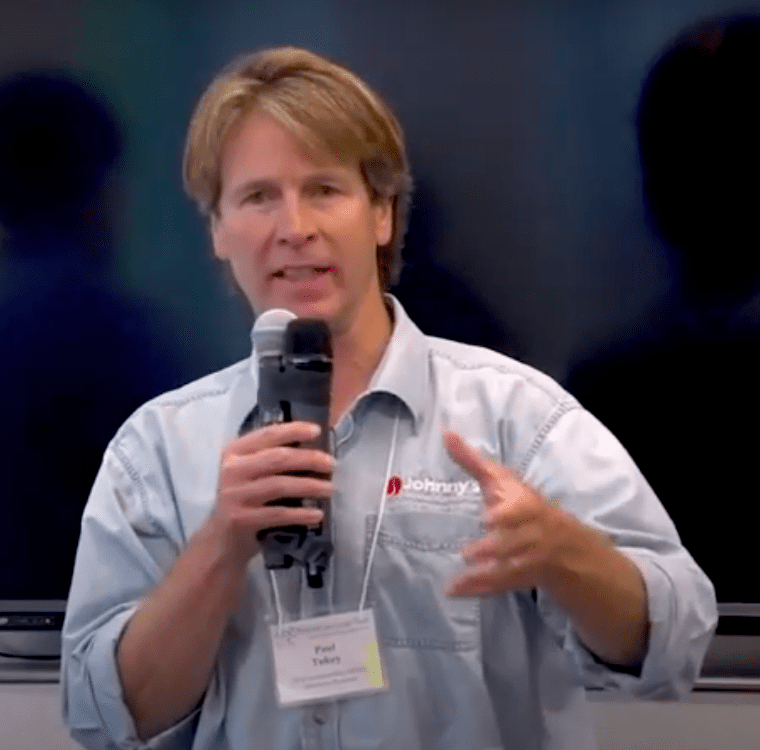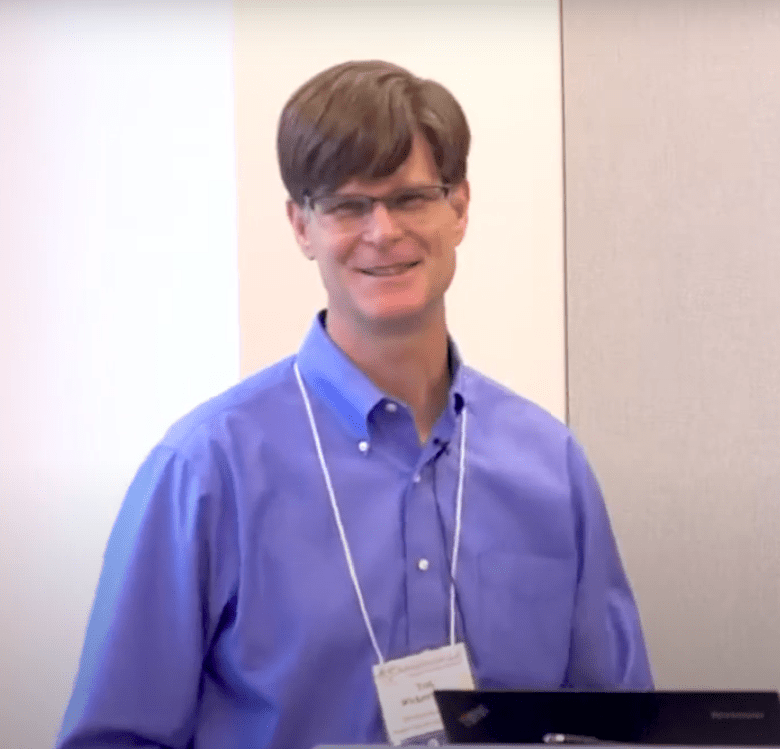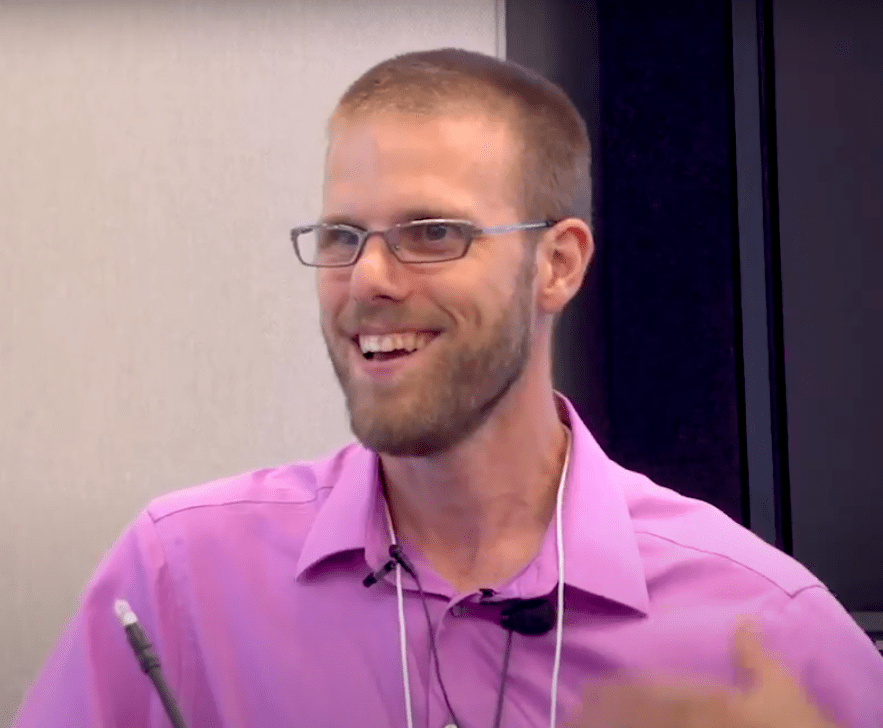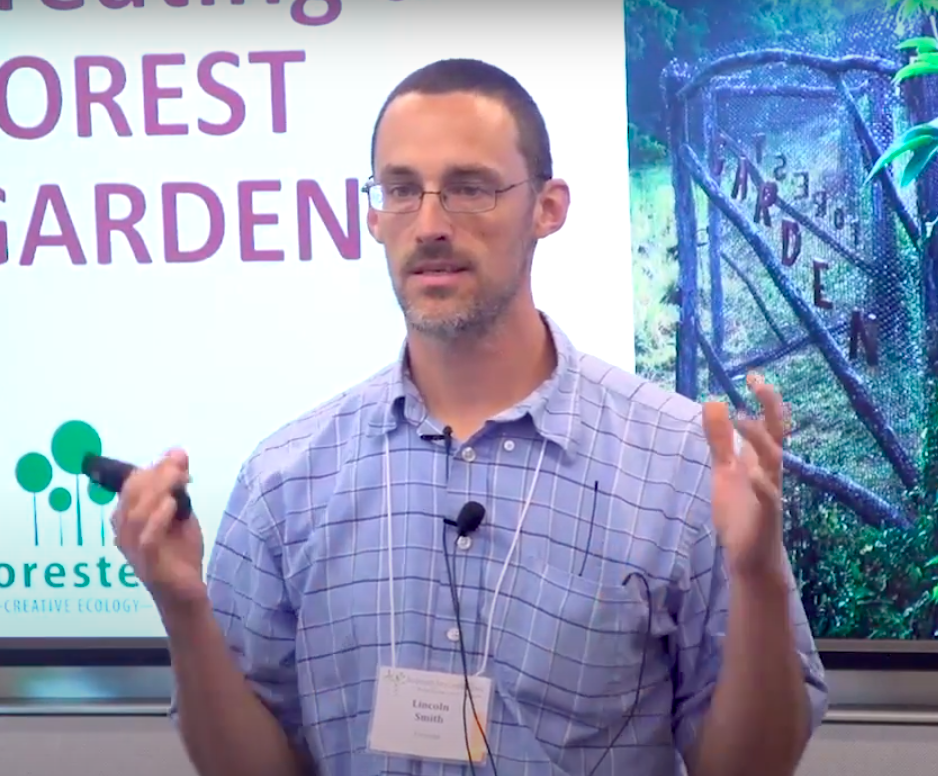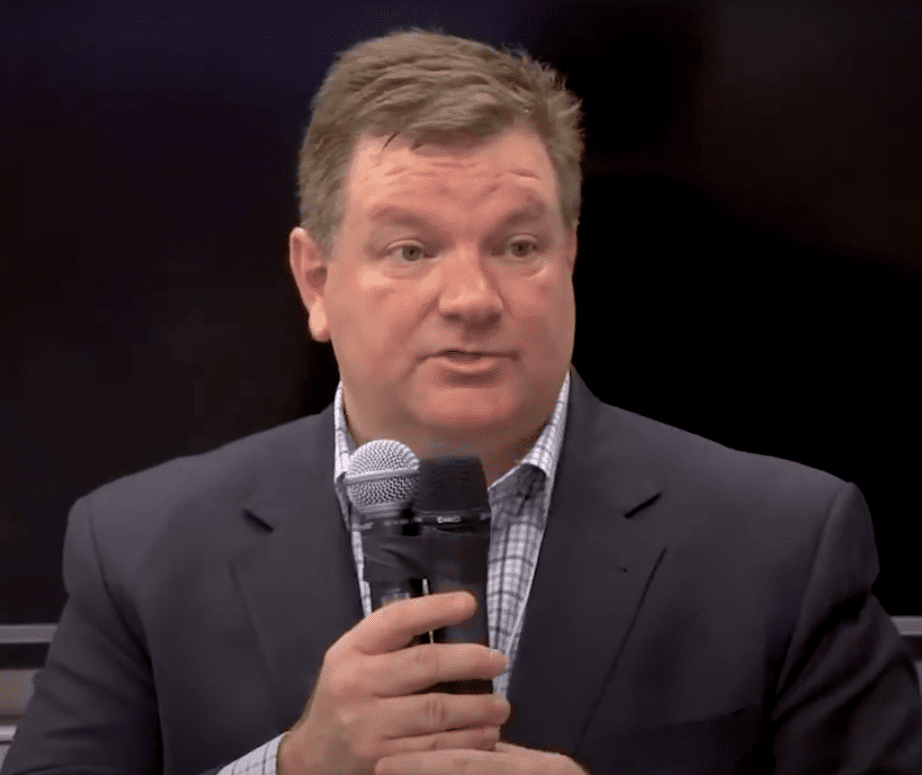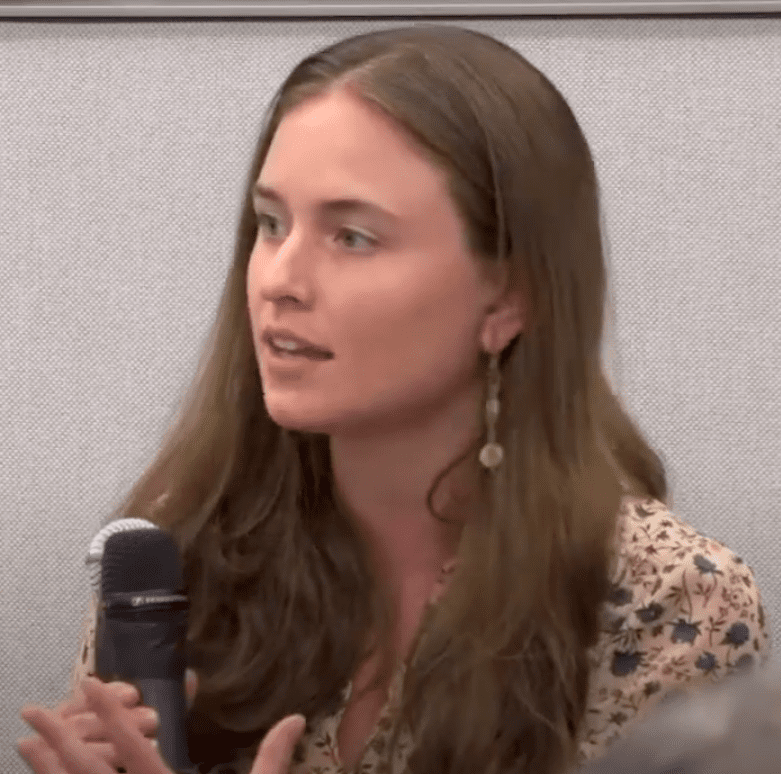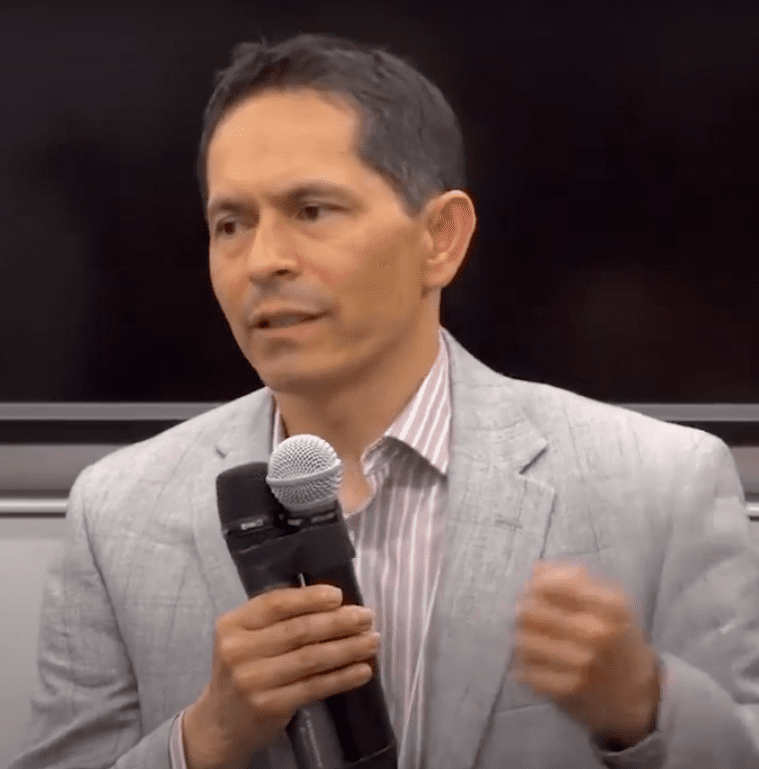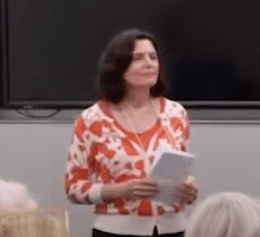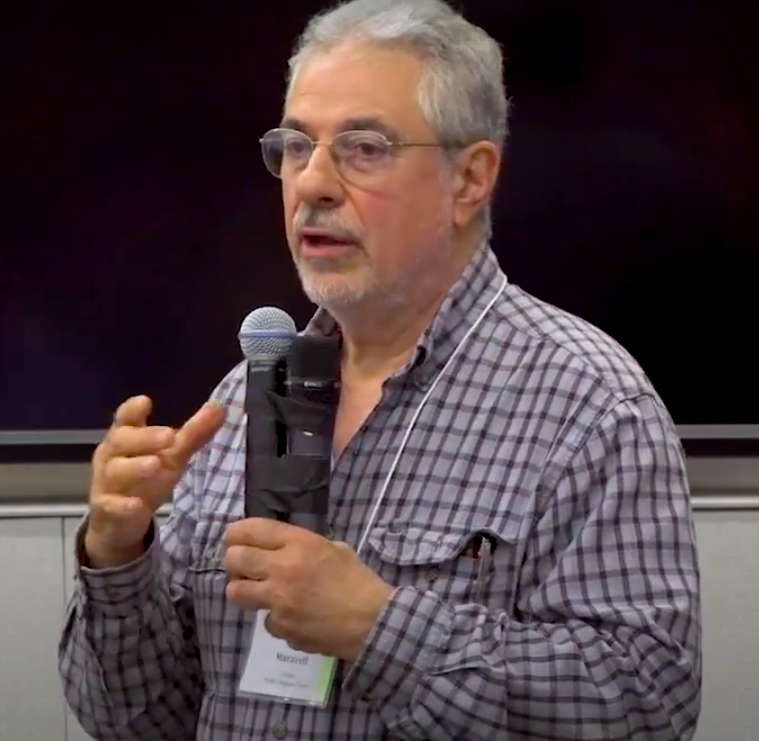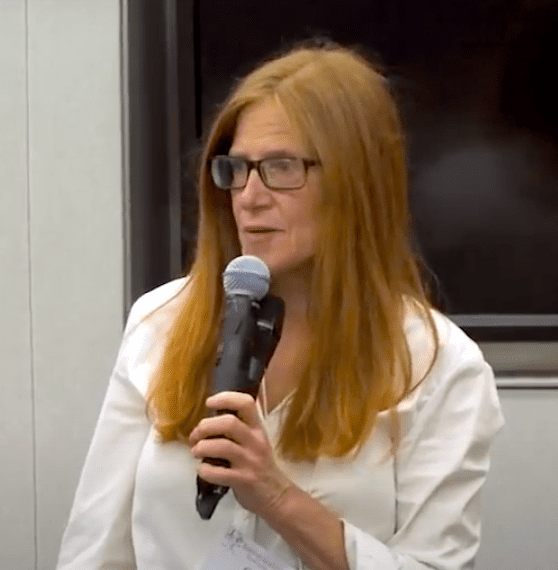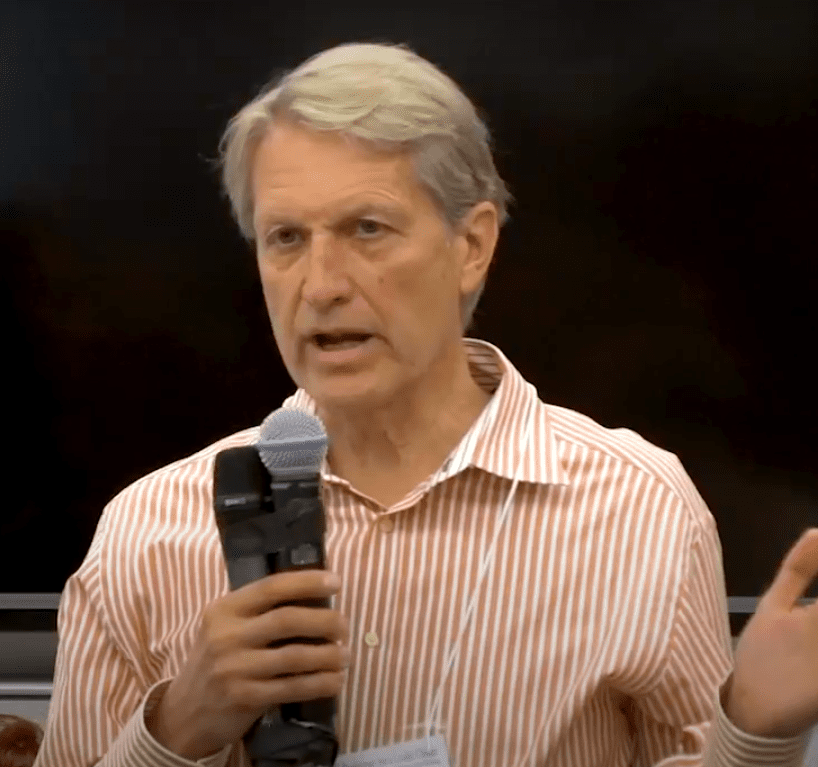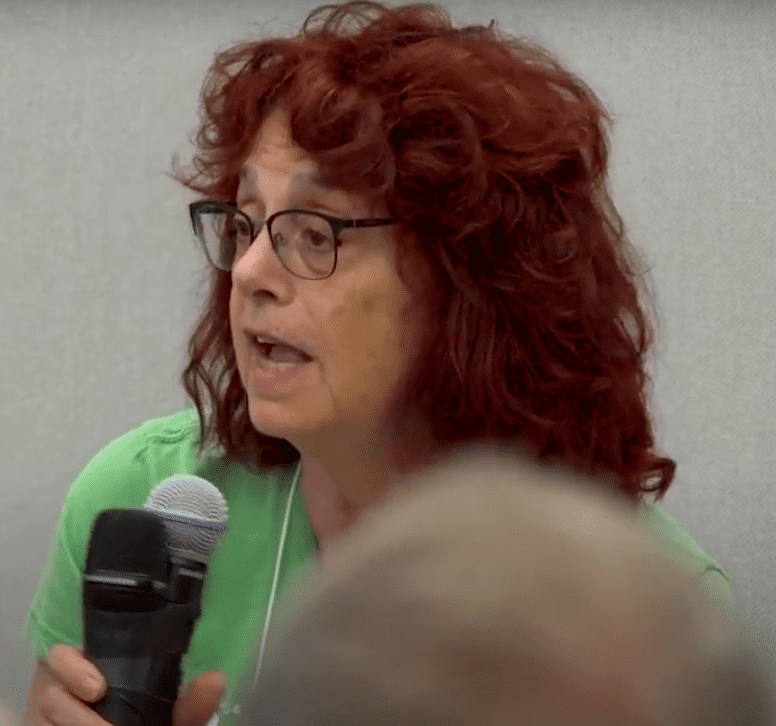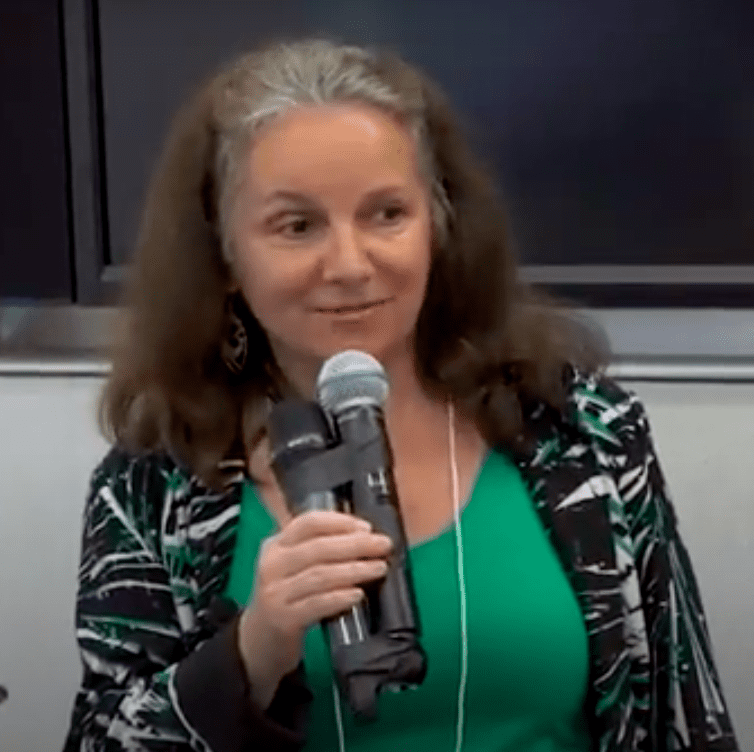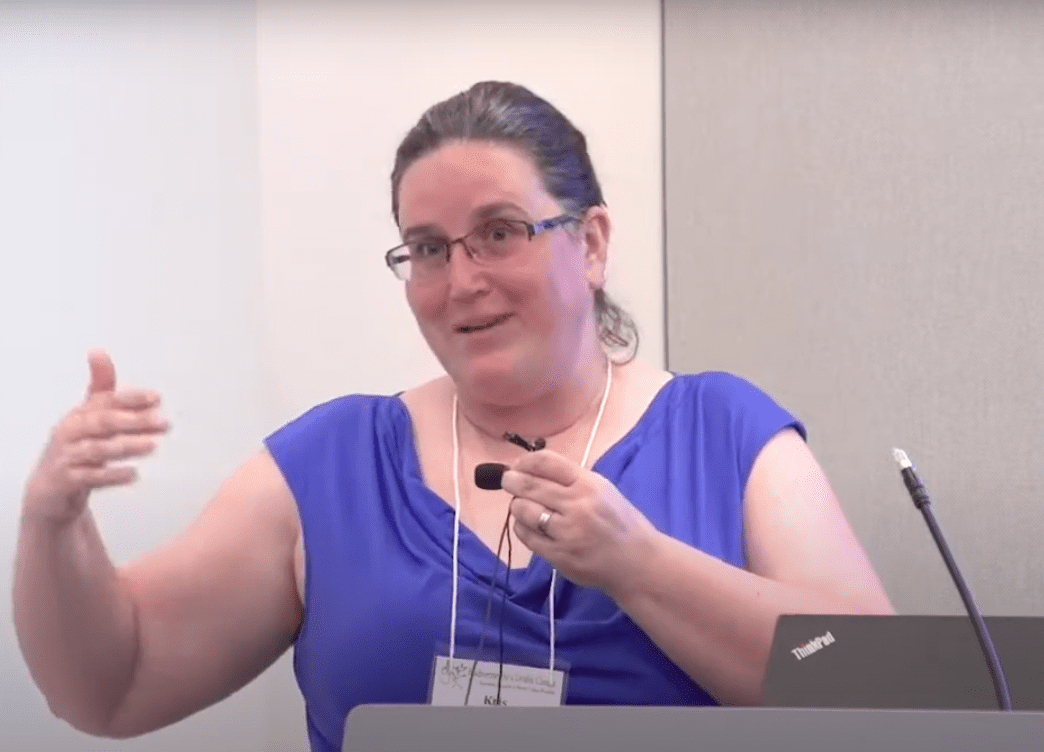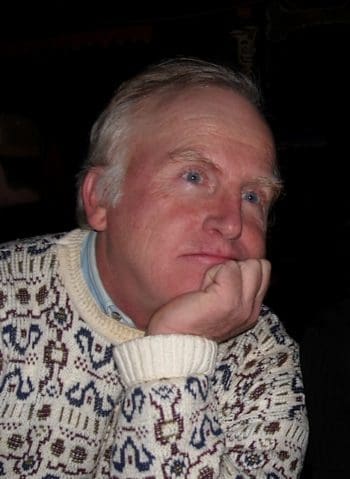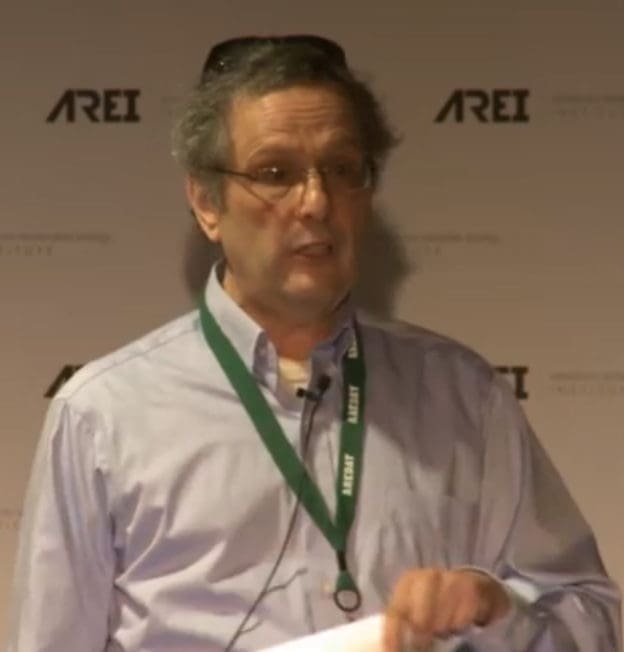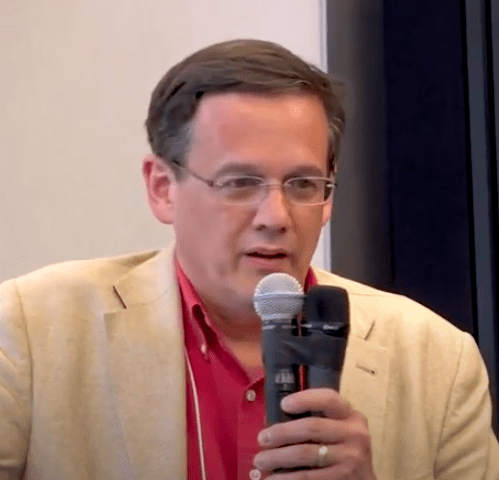Betsy Nicholas, Executive Director, WATERKEEPERS® Chesapeake and Fair Farms, has more than 16 years of experience in environmental law and policy. Upon joining WATERKEEPERS® Chesapeake in December 2012, she saw an opportunity to help farmers develop management practices that benefited the farmers and improved water quality. With much outreach and collaboration, Fair Farms Maryland was born. Fair Farms is now a movement of Marylanders of all stripes, working together for a new food system — one that’s fair to farmers, invests in homegrown, healthy food, and restores our waterways instead of polluting them. www.waterkeeperschesapeake.com
Tag: scenario 300 2017
Ling Tan
Ling Tan is a founding member of Safe Grow Montgomery, an all-volunteer coalition that advocates for safer communities through healthy, pesticide-free lawns and outdoor spaces. Safe Grow Montgomery’s efforts has made Montgomery County, Maryland, the first county in the country to enact legislation that would restrict the use of harmful lawn pesticides on public and private properties. She is also the pesticide chair of Sierra Club Maryland, working on related state legislations and grassroots pesticide campaigns.
Alexis Baden-Mayer, Esq.
Alexis Baden-Mayer, Esq. Political Director, Regeneration International and Organic Consumers Association
Regeneration International, a project of the Organic Consumers Association, is a 501(c)(3) nonprofit dedicated to building a global network of farmers, scientists, businesses, activists, educators, journalists, governments and consumers who will promote and put into practice regenerative agriculture and land-use practices that: provide abundant, nutritious food; revive local economies; rebuild soil fertility and biodiversity; and restore climate stability by returning carbon to the soil, through the natural process of photosynthesis. Through our global network, we are connected to 3.6 million consumers, farmers, activists, scientists and policymakers in over 100 countries. http://regenerationinternational.org
Paul Tukey
Paul Tukey, Author, The Organic Lawn Care Manual, and Chief Sustainability Officer, Glenstone Museum, is credited with spearheading the movement against utilization of synthetic chemical pesticides on lawns. Paul Tukey is an internationally recognized and honored sustainability consultant, entrepreneur, author, publisher, lecturer, filmmaker, television host and producer. A dynamic leader of several high-profile organizations in both the for-profit and non-profit sectors, and a sought-after consultant and public speaker, he currently develops sustainability protocols for the Glenstone Foundation near Washington, DC.
Tod Wickersham
Theodore “Tod” S. Wickersham, Jr., President of Beneficial Results LLC, focuses on assisting businesses and nonprofits improve their operations / profitability, build alliances, enhance collaboration, lead stakeholder groups, open markets, influence public policy, and achieve program objectives that also result in improved water and air quality, and reduced carbon dioxide, methane, nitrous oxide and diesel/toxics pollution. In preparation of the 2018 Farm Bill and with the new science on soil health, he is working at the intersection of Climate and Agriculture/land-use to benefit farmers, ranchers, the environment and health. He also actively collaborates with Biodiversity for a Livable Climate in Washington, DC and Maryland. www.beneficialresults.com
Ben Friton
Ben Friton is a soil ecologist, consultant and educator from the Washington DC area. For more than a decade he was a speech professional working with politicians, heads of state, CEOs, and philanthropic icons from around the world. In 2010, with the goal of helping to increase educational awareness and hyper-local food resiliency, he co-founded a non-profit called Can YA Love. Using biomimicry and his patented vertical gardening systems, he works to help people restore degraded lands into functioning ecosystems that produce what people need. In 2014 he joined Forested to help develop the most ecologically-sound agro-ecosystem possible.
Lincoln Smith
Lincoln Smith runs Forested, a 10-acre forest garden in Bowie, MD. He tests forest farming methods, educates aspiring forest farmers, consults on new forest farms and brings forest products to market. He produces a forest garden farm share, has designed food forest parks planted in the DC region, and holds forest-to-table events. Check out the National Geographic article about his forest garden in Bowie, MD (www.Forested.us).
Claudio Ternieden
Claudio H. Ternieden is the Senior Director of Government Affairs and Strategic Partnerships at Water Environment Federation in Alexandria, VA. Claudio directs WEF’s legislative and regulatory efforts in Washington, DC with both Congress and federal agencies and works to represent water professionals in our nation’s capital. Before coming to WEF, Claudio worked with several other organizations on water systems and environmental regulation, including the Water Environment & Reuse Foundation (WE&RF), the American Association of Airport Executives (AAAE), and the U.S. Environmental Protection Agency (EPA) in Washington, DC. Claudio has a doctorate in jurisprudence (JD) from Pace University School of Law (White Plains, NY), a Master Degree in Public Policy (MPP) from George Mason University (Arlington, VA), and a BA from Concordia College (Bronxville, NY).
Emily Landis
Emily Landis is the Global Coastal Wetlands Strategy Lead at The Nature Conservancy. Her primary focus is on the role coastal wetlands play in sequestering carbon and climate adaptation. Emily comes with a marine background working for the Global Ocean Commission, Pew Charitable Trusts, and Rare. She holds a Master’s Degree in biology from University College London, and holds a Bachelor of Arts degree in environmental science and international policy from American University.
Dan Medina
Daniel Medina, PhD, PE, D.WRE, is a Senior Engineer based in LimnoTech’s Washington DC office, who specializes in water resource systems planning and climate change and resilience. His experience encompasses a wide array of water resources areas, especially in urban water issues including flood risk management, water supply, watershed restoration, climate change impacts, and the application of green infrastructure for stormwater management. He led projects in North America, Latin America, the Caribbean, Europe, and the Middle East. He was invited to testify before the U.S. Senate Environment & Public Works Committee. Dan has authored over 80 publications, presentations, and workshops on urban watershed issues. He was co-editor of the latest Manual of Practice for Design of Urban Stormwater Controls published jointly by WEF and ASCE. He is a consultant for the World Bank and was formerly a professor of Civil Engineering at Northeastern University in Boston, Massachusetts.
Charlene Johnston
Charlene Johnston, PE, is a professionally licensed Civil Engineer and Program Manager at AECOM. She has more than 20 years of engineering experience. Over the past 15 years, Charlene’s professional focus includes climate resiliency and control of stormwater projects and flood studies. Her passion is green infrastructure (GI) / low impact development (LID) and building resiliency in communities. Charlene was a member of ASCE’s Blue Ribbon Review Panel to review the Water Environment Federation’s Manual of Practice No. 23, Design of Urban Stormwater Controls. She is a member of the DC Chapter of Biodiversity for a Livable Climate, Environmental Water Resources Institute, and the Water Environment Federation.
Nick Maravell
Nick Maravell Farmer, Buckeystown, MD, has been farming organically for more than 40 years, using a diversified grass-based farming system, with an 8- 12 year rotation. Committed to developing local and regional food systems, Nick has helped establish and operate several farmer cooperatives, has conducted on- farm organic research in cooperation with USDA and Land Grant Universities, and has worked on a national organic research agenda and legislation to fund on- farm organic systems research. He has been active in many local, state and national groups dedicated to organic and sustainable agriculture, and was instrumental in establishing the MD Dept. of Agriculture organic certification program. Nick served a five-year term on National Organic Standards Board (2011- 2016).
Cleo Braver
Cleo Braver has the pleasure of living on Cottingham Farm with her husband Allie Tyler, where she and her two full-time employees produce certified organic vegetables and pastured meat and eggs in order to contribute to a year-round natural resource-based economy. She sells to grocers, restaurants and any member of the public who wishes to drive out to the farm on Thursdays-Saturdays.
She enjoyed a previous career as an environmental lawyer for a public company, and she has always advocated for ways in which the law can serve the public interest, particularly with respect to the environment. Most recently, she has been engaged in efforts to create the non-profit Eastern Shore Food Hub to aggregate, market and distribute locally and sustainably produced foods, and engage communities in growing and eating healthy foods and recognizing the direct relationship between their personal food choices, personal and public health, the environment, and the economy.
Ed Huling
Ed Huling is a nutritionist, researcher, environmentalist and farmer. He led a research project at the USDA about fourteen years ago, and learned about the decline of nutrients in our soil and our food. He founded New Day Farms to practice regenerative agriculture to address this serious issue and provide genuinely nutrient-dense greens to the public. He is also deeply interested in the role of healthy soils in the context of climate and is actively pursuing projects that will help build our knowledge base regarding this important relationship.
Margaret Morgan-Hubbard
Margaret Morgan-Hubbard, Founder and CEO of ECO City Farms, is an organizer, educator, activist and life-long environmentalist. Morgan-Hubbard’s prior professional experience includes: directing the Engaged University at the University of Maryland; leading the Office of Communications at the US Environmental Protection Agency; heading a national environmental organization and managing DC’s Low Income Weatherization and related Block Grant housing programs. She is a state-certified compost site manager, an active member of the Port Towns Community Health Partnership, and a recipient of the National Capital Area Chapter American Planning Association’s Distinguished Leadership of a Citizen Planner award. Morgan-Hubbard holds a BA from Bennington College, a Masters from Columbia University, and a second Masters from New School for Social Research, where she also completed her coursework for the PhD.
Gina Angiola
Gina Angiola, MD is a retired physician who has served as an educator and organizer on a wide array of issues ranging from election integrity to environmental sustainability. Most recently, she helped lead the successful campaign for a legislative ban on fracking in Maryland. As a lifelong advocate for healthy environments and a climate activist for over 14 years, she has worked to accelerate the transition to a renewable energy-based economy; she is now committed to promoting ecosystem restoration as the most urgent priority in addressing climate change. She serves as a Board Member of Biodiversity for a Livable Climate and Deputy Director of the DC Chapter, and as a Board member of Chesapeake Physicians for Social Responsibility. She received her Bachelor of Science in Chemistry at MIT and her MD from University of California, Irvine.
Kris Nichols
Kris Nichols, Chief Scientist, Rodale Institute, examines the impacts of management such as crop rotation, tillage practices, organic production, cover crops, and livestock grazing on soil aggregation, water relationships, and glomalin at the Institute. She received a Bachelor of Science in Plant Biology and in Genetics and Cell Biology from the University of Minnesota, a Masters in Environmental Microbiology from West Virginia University, and a Ph.D. in Soil Science from the University of Maryland.
Dr. Nichols has worked as a Soil Microbiologist with the USDA for over 14 years, the first three in Beltsville, MD and then at Agricultural Research Service (ARS) Northern Great Plains Research Laboratory (NGPRL) in Mandan, ND for the next 11 years.
Jim Laurie
Jim Laurie, Restoration Ecologist, Biodiversity for a Livable Climate, is a biologist from Rice University and is a pioneer in biological remediation of waste water. He was the technical manager of the world’s largest “Living Machine” project to clean raw municipal sewage with no toxic chemicals. The facility, through a grant from the EPA, processed 80,000 gallons/day using the “living machine” methodology invented by ecological visionary, and Buckminster Fuller Award recipient, John Todd.
Prior to that, for twenty years Jim was a biologist and trainer in the chemical industry in Houston, TX, where his work with living machines resulted in processing effluent cleaner than possible with conventional technology. Jim has also been a passionate advocate for Holistic Management of grasslands in the past decade. He began studying with Allan Savory twenty years ago in Texas, has spoken about Holistic Management at Harvard, MIT, Tufts, the Stockholm Environment Institute, and at meetings of the Massachusetts Climate Action Network (MCAN) and Northeast Organic Farmers Association (NOFA), and has been instrumental in spreading the message in New England.
Jim is also co-founder of a lively and sophisticated Google Group, Soil-Age, and he invites you to join!
Adam Sacks
Adam Sacks has had careers in education, holistic medicine, computer technology, politics and advocacy. For five years he directed a non-profit that worked with communities invoking basic democratic and constitutional principles to oppose detrimental local corporate activity. He has been a climate activist for the past sixteen years and has been studying and writing about Holistic Management since 2007. On the side he is an artist, writer, and student of classical piano. His primary goal is regeneration of biodiversity and a livable planet.
Philip Bogdonoff
Philip Bogdonoff is an engineer by training and an ecologist by heart. He serves as a Board Member of Biodiversity for a Livable Climate and Director of the Washington DC Chapter. He is a past trustee and board chair of Friends Community School; a co-founder of the Sustainable Washington Alliance; a past vice president of the Millennium Institute; and has been a consultant in the Environment Department of the World Bank; and worked as research assistant in the Section of Ecology and Systematics at Cornell University, helping to model the global carbon cycle. He and Jim Laurie constructed DC’s first “Living Machine” more than 15 years ago. More recently, he facilitated the introduction of Maryland’s Healthy Soils bill (HB1063), which we expect Governor Hogan to sign any day now.

